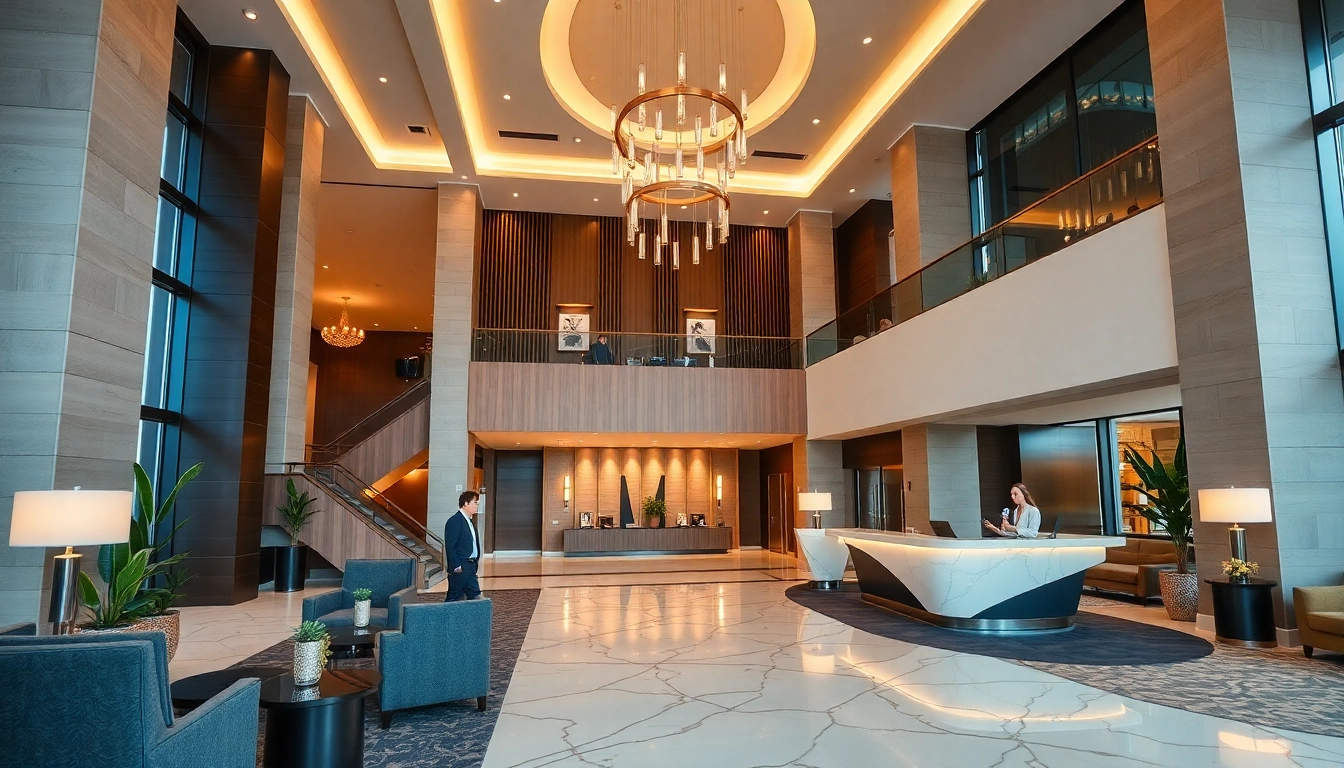Understanding Hotel Management Basics
Definition and Scope of Hotel Management
Hotel management is a critical branch of the hospitality industry, encompassing the administration and operation of hotels and hospitality services. It integrates various disciplines such as finance, human resources, and marketing, ensuring efficient workflow and outstanding guest experiences. It aims not only at guest satisfaction but also at profitability and sustainable operations of the hotel.
Key Responsibilities in Hotel Management
Hotel management encompasses a wide range of responsibilities, including:
- Operational Oversight: Managers oversee daily operations, from front desk management to housekeeping and maintenance.
- Financial Management: Responsible for budgeting, forecasting, and managing hotel expenditures, ensuring financial viability.
- Staff Management: Hiring, training, and managing staff are essential for maintaining service quality.
- Customer Relations: Facilitating exceptional guest experiences and handling complaints effectively are paramount for retaining customers and generating positive reviews.
Importance of Customer Experience in Hotel Management
In the realm of hotel management, the customer experience is of utmost importance. Studies show that a positive guest experience not only enhances customer loyalty but also drives revenue growth through repeat business and referrals. Hotel managers must pay attention to feedback and continuously adapt service offerings to meet evolving guest expectations, leveraging technology for personalized services.
Core Components of Effective Hotel Management
Financial Management in Hotels
Effective financial management is crucial for the sustainability of any hotel. Hotel managers must be adept at budgeting, revenue management, cost control, and financial analysis. Advanced tools like property management systems (PMS) can help track financial performance in real-time, allowing managers to make informed decisions quickly. Comprehensive financial reporting should include:
- Revenue per available room (RevPAR)
- Average daily rate (ADR)
- Occupancy rates
Staff Management and Training Strategies
A motivated and skilled team is the backbone of successful hotel management. Effective hiring practices, continuous training programs, and a positive workplace culture contribute significantly. Managers should implement the following strategies:
- Regular training sessions to keep staff updated on industry standards and technologies.
- Performance reviews and feedback mechanisms to encourage professional growth.
- Culture building through team-building exercises and open communication.
Operational Efficiency for Superior Guest Services
Operational efficiency is vital for providing superior services without compromising quality. Streamlining processes such as check-in/check-out, room service, and cleaning operations can enhance guest satisfaction. Implementing technology like mobile check-ins, automated housekeeping scheduling, and service request systems can reduce wait times and increase convenience for guests. Regular audits of operational workflows will help identify areas for improvement.
Advanced Techniques in Hotel Management
Leveraging Technology in Hotel Management
Technology plays a transformative role in modern hotel management. Hotels are increasingly adopting sophisticated software solutions to enhance operational efficiency and guest satisfaction. Essential technologies include:
- Property Management Systems (PMS): These systems facilitate managing reservations, check-ins, payments, and more in a centralized platform.
- Revenue Management Systems (RMS): By utilizing data analytics, hotels can set competitive prices and maximize occupancy rates.
- Customer Relationship Management (CRM): CRM tools help maintain guest profiles, personalize marketing efforts, and manage feedback efficiently.
Marketing Strategies for Hotel Success
In a highly competitive marketplace, effective marketing strategies are paramount. Hotel management should focus on:
- Online Presence: Utilizing social media platforms, search engine optimization (SEO), and attractive website designs to enhance visibility.
- Targeted Promotions: Crafting tailored packages and discounts based on guest demographics and booking trends.
- Engagement Strategies: Regular engagement with past guests through newsletters, loyalty programs, and special events can nurture loyalty and repeat bookings.
Measuring Performance and Guest Satisfaction
To ensure continuous improvement in hotel operations, measuring performance metrics is essential. Key performance indicators (KPIs) should encompass both qualitative and quantitative measures such as:
- Guest satisfaction surveys
- Online review scores (e.g., TripAdvisor, Google Reviews)
- Employee satisfaction metrics
Regularly analyzing these data points will help management identify strengths and weaknesses, thus refining operational strategies to enhance guest experiences.
Career Opportunities in Hotel Management
Pathways to Becoming a Hotel Manager
The pathway to a successful career in hotel management typically involves a combination of education and hands-on experience. Prospective managers often pursue degrees in hospitality management or related fields. Additionally, internships and entry-level positions in various departments (front office, food & beverage, housekeeping) provide valuable insights and skills essential for managerial roles. Networking within the industry can also open doors to new opportunities.
Essential Skills for Hotel Management Professionals
Hotel managers are required to possess a diverse skill set, including:
- Leadership: Guiding teams through challenges and maintaining high morale.
- Communication: Effectively interacting with guests, staff, and stakeholders.
- Problem-Solving: Quickly addressing operational issues that may arise to ensure smooth operations.
- Financial Acumen: Understanding financial principles to make strategic decisions.
Salary Expectations in Hotel Management Roles
Salary expectations in hotel management can vary widely based on the hotel’s location, size, and the manager’s level of experience. Entry-level positions typically start in the range of $40,000 to $60,000 annually, while experienced hotel managers can earn upwards of $100,000. General managers of larger establishments or luxury hotels can command salaries exceeding $200,000, along with bonuses and profit-sharing options.
Future Trends in Hotel Management
Adapting to Changes in Travel Behavior
The advent of digital technology and changes in consumer behavior are reshaping the hotel industry. Post-pandemic, travelers are prioritizing safety, flexibility, and unique experiences. Hotels must adapt to these preferences by offering customizable stay options and enhancing cleanliness protocols. Understanding demographic shifts and travel preferences will be critical for hotel managers to remain competitive.
Sustainability Practices in Hotel Management
With an increasing focus on environmental sustainability, hotels are implementing eco-friendly practices to appeal to environmentally conscious travelers. Key actions include:
- Reducing energy consumption through smart technology.
- Implementing waste reduction strategies, such as recycling and composting.
- Utilizing sustainable sourcing for food and amenities.
These practices not only enhance the hotel’s eco-friendliness but can also lead to cost savings in the long run.
The Impact of COVID-19 on Hotel Management
The COVID-19 pandemic has dramatically influenced hotel management, forcing the industry to re-evaluate standard operating procedures. Enhanced protocols regarding health and safety are now paramount, with many hotels employing new technologies for contactless services and communication. The shift towards digitalization and health-conscious travel will continue to shape the future of hotel management.















Leave a Reply